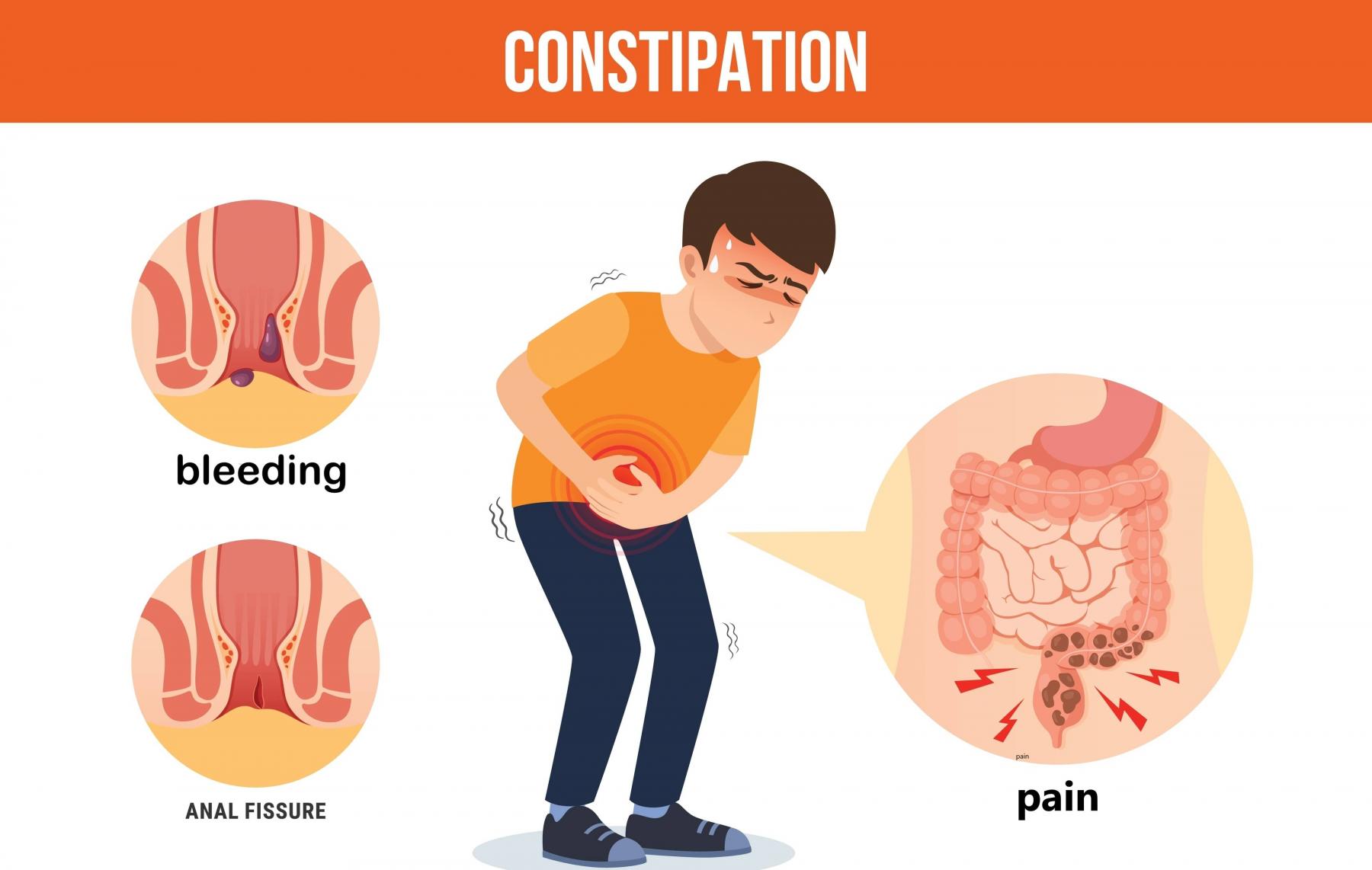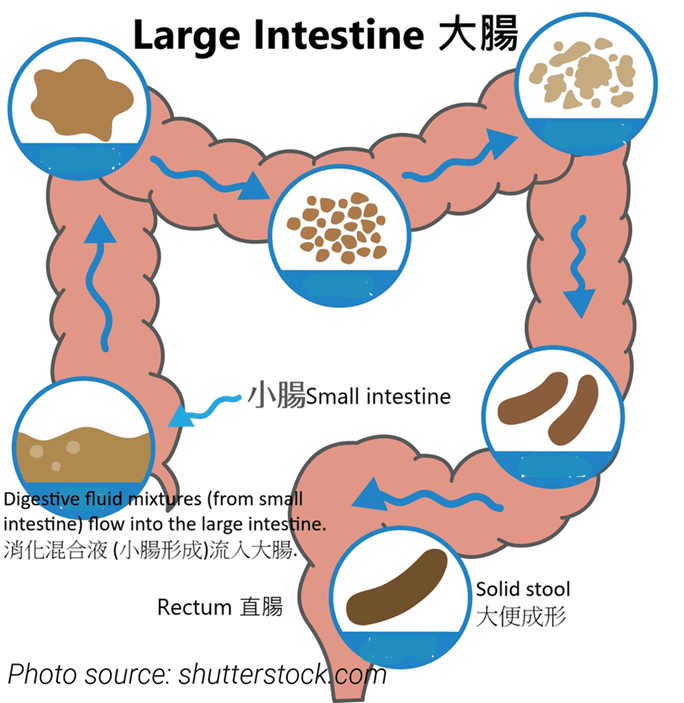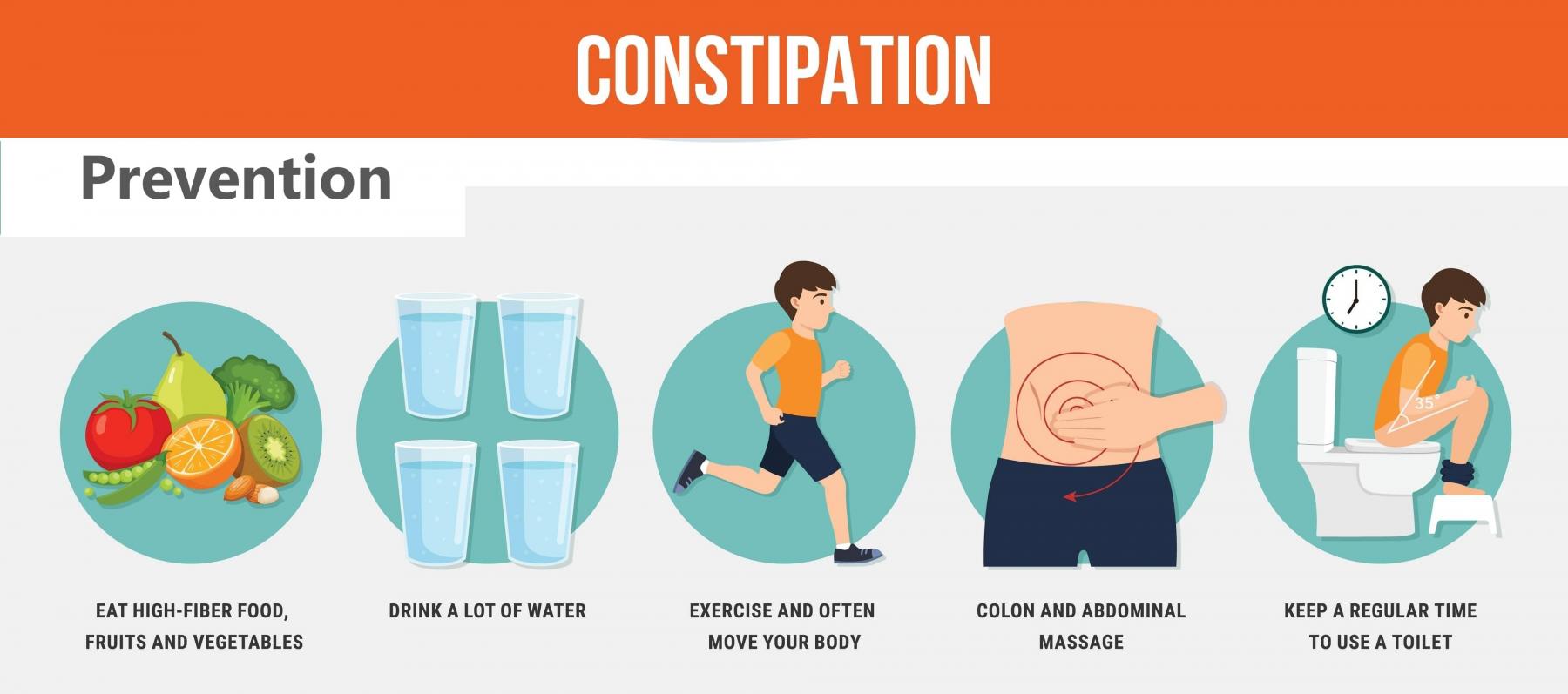Occasional bowel changes are quite common, as our bowel habits can easily be affected by many factors, such as diet, fluid intake, exercise, emotions and medications. If you notice significant changes in your bowel habits, it's a good idea to consult a doctor.
Many people tend to have a regular bowel pattern, such as pooping at the same time every day, however, it is generally considered normal if your bowel habits range from three times a week to three times a day. Individuals with bowel difficulty can experience the following:
- passing less often than usual
- the stools are hard, dry or lumpy
- straining or pain when passing stools
- an incomplete feeling afterward
Constipation is a symptom rather than a disease. It can be a sign of various health conditions, but it is more common due to some lifestyle factors, such as an unhealthy diet, lack of exercise, no drinking enough, or certain medications. Therefore, it can usually be solved with simple changes to your diet and lifestyle.

Chronic constipation, however, can sometimes be associated with specific medical conditions that require treatment. Individuals should seek professional advice if they also with any of the following conditions:
- bowel difficulty longer than three weeks
- interfering with daily activities
- blood on tissue paper or blood in stools
- changes in the shape or color of stools
- unexplained weight loss
- vomiting, abdominal pain or bloating
- difficulty in passing stool after home remedies
Constipation is quite common across all age groups; women are more likely than men. Its prevalence varies over ages.
- Children: Constipation affects about 3% of children worldwide. It is often due to dietary changes, toilet training, and school-related stress.
- Teenagers: While specific statistics for teenagers are less common, they can experience constipation due to diet, lifestyle, and stress. It is estimated that 14% or above adolescents may experience constipation.
- Adults: About 16% of adults experience constipation, due to factors like diet, lack of physical activity, and certain medications.
- Elderly: Constipation is more prevalent in older people, with about 33% of aged 60 and older having it. This can be due to reduced physical activity, medications, and changes in diet.
Movements inside the large intestine are essential for the final stages of digestion and waste elimination. The large intestine, also known as the colon, is responsible for absorbing water and salt from the food waste that passed down from the small intestine and turning it into solid waste (stools). The stools are then stored temporarily in the rectum, awaiting signals to be expelled through the anus. When waste materials move too slowly through the large intestine, they become hard and dry, leading to infrequent bowel movements, difficulty passing stools, and abdominal bloating or fullness.

The intestines form a long muscular tube that fills the abdominal cavity. The small intestine is about 3 to 7 meters long, while the large intestine is about 1.5 meters long. Bowel contents travel from one section to another along this tube in a coordinated manner. There are muscular gates or sphincters that control the contents, allowing them to stay long enough for the intestines to perform specific tasks such as breaking down, mixing, absorption, and refining waste. The pushing force is accomplished by a combination of muscular wall contractions and motility patterns that regulated by a series of complex signals.
Traditional Chinese Medicine (TCM) has unique views on constipation development, and physicians treat the problem with a holistic approach.
Main TCM References
- Zhu Wenfeng (editor-in-chief), TCM Diagnosis and Differential Diagnosis, People's Medical Publishing House, 1999.
- Wang Fuchun (chief reviewed), Hundred Cases of Acupuncture & Moxibustion Therapy, Beijing Science & Technology Bibliography Publishing House, 2007.
- Bi Pinxian (editor-in-chief), Essentials of Internal Medicine Therapies in TCM, Guangdong Technology Publishing House, 2006.
- Tan Tonglai (editor-in-chief), TCM Observation and Herbal Application, Shanxi Science & Technology Publishing House, 2007.
- Wang Wei-heng et al (editor-in-chief), 500 Questions on TCM External Therapies, Anhui Science & Technology Publishing House, 2004.





